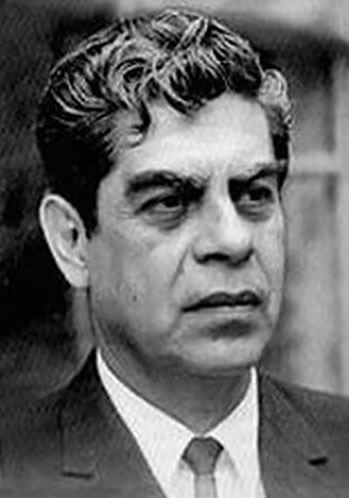Enrique Gil Gilbert (Guayaquil, July 8, 1912 – Ibidem, February, 21, 1973) was an Ecuadorian novelist, short story writer, nonfiction writer, politician and teacher. He was the youngest member of the “Guayaquil Group,” a group of realist writers of the 1930s Ecuador. At only eighteen years of age he co-wrote “Los que se van, cuentos del cholo y del motuvio“ (1930) with Demetrio Aguilera Malta and Joaquín Gallegos Lara – a book of short stories which marked the beginning of literary realism in Ecuador. His most famous work is his only novel, “Nuestro pan” (1942), which was translated into English in 1943 as “Our Daily Bread.” His other noteworthy story collections include: “Yunga,” “Relatos de Emanuel” [Tales of Emanuel], and “La cabeza de un niño en un tacho de basura” [The Head of a Child in a Trash Can].
Early Life and Education
Enrique Gil Gilbert was born on July 8, 1912, in Guayaquil, Ecuador, in a wooden house owned by his parents, Enrique Gil Quezada and Alejandrina Gilbert Pontón. His father was a prosperous municipal contractor and farmer who co-founded the “Albemarle Development Corporation Galapagos Island” with an American businessman, Washington Henry Oschner, to expand agricultural ventures in the Galápagos Islands. Tragically, in 1921, Enrique’s father suffered a stroke while on a ship to the islands, dying en route. His brother Carlos took over the business, but mismanagement led to the family estate’s disintegration.
Growing up amid the loss of his father, Enrique showed an early passion for literature, writing his first book of poems, Iris, which earned praise from Ecuadorian poet María Piedad Castillo de Leví. Despite these early literary inclinations, Enrique’s childhood also involved managing cattle during vacations at the Chojampe hacienda. He shouldered responsibilities early, especially toward his younger brother Antonio, who became a successful obstetrician before dying young. His widow, Dr. Manuelita Yuen Chong, later founded the Clínica Antonio Gil in his memory.
Enrique completed his primary education at Colegio Cristóbal Colón and attended secondary school at Vicente Rocafuerte. However, in 1929, his uncle Abel Gilbert Pontón, who was the rector, faced a student strike. Enrique left school in solidarity with the protest, after which the family moved to Riobamba, where he graduated from Colegio Pedro Vicente Maldonado. It was here that he first became interested in leftist politics, meeting key figures like Demetrio Aguilera Malta and Joaquín Gallegos Lara, with whom he would form lifelong bonds.
Literary Career
Gil Gilbert became the youngest member of the “Guayaquil Group,” a collective of realist writers active during the 1930s. At just 18, he co-authored Los que se van, cuentos del cholo y del montuvio (1930), a landmark collection of short stories that signaled the beginning of social realism in Ecuadorian literature. His contributions to the book, which focused on the struggles of coastal peasants and the working class, helped establish him as a prominent voice in Latin American literature.
In 1933, he published his own short story collection, Yunga, followed by Relatos de Emmanuel (1939), which explored the internal struggles of a bourgeois young man. His only novel, Nuestro pan (1942), solidified his reputation as a leading figure in Ecuadorian literature. The novel, a vivid depiction of the exploitation of rice farmers, was translated into several languages, including English (Our Daily Bread), and won honorable mention in the Latin American Prize Novel Competition.
Gil Gilbert’s works, including La cabeza de un niño en un tacho de basura (1967), reflected his commitment to portraying the harsh realities of life for the working class and the marginalized in Ecuador.
The Guayaquil Group
The Guayaquil Group was a collective of five writers—Gil Gilbert, Demetrio Aguilera Malta, Joaquín Gallegos Lara, Alfredo Pareja Diezcanseco, and José de la Cuadra—who championed social realism and addressed the lives of Ecuador’s coastal peasants and the indigenous population. Their work critiqued social and economic inequalities, often incorporating socialist ideals and a focus on local culture. Their pioneering efforts in literary realism laid the groundwork for later movements like magical realism.
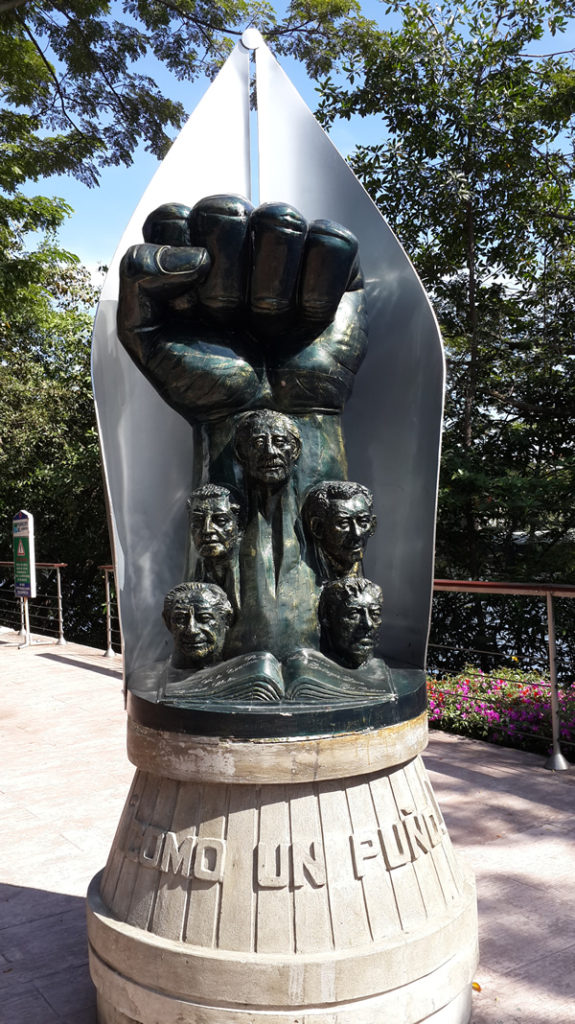
Political Involvement
A committed communist, Gil Gilbert joined the Communist Party of Ecuador in 1932. His political activism led to frequent persecution and imprisonment, particularly during times of dictatorship in Ecuador. He was first imprisoned in 1935 under the dictatorship of Federico Páez and again in 1963 during a military junta. During his 1963 imprisonment, his home was ransacked, and many of his unpublished manuscripts were destroyed, including several novels in progress. Gil Gilbert continued to be an influential figure in Ecuador’s political and cultural life, serving as a member of Ecuador’s National Assembly and contributing to the drafting of the 1945 Constitution.
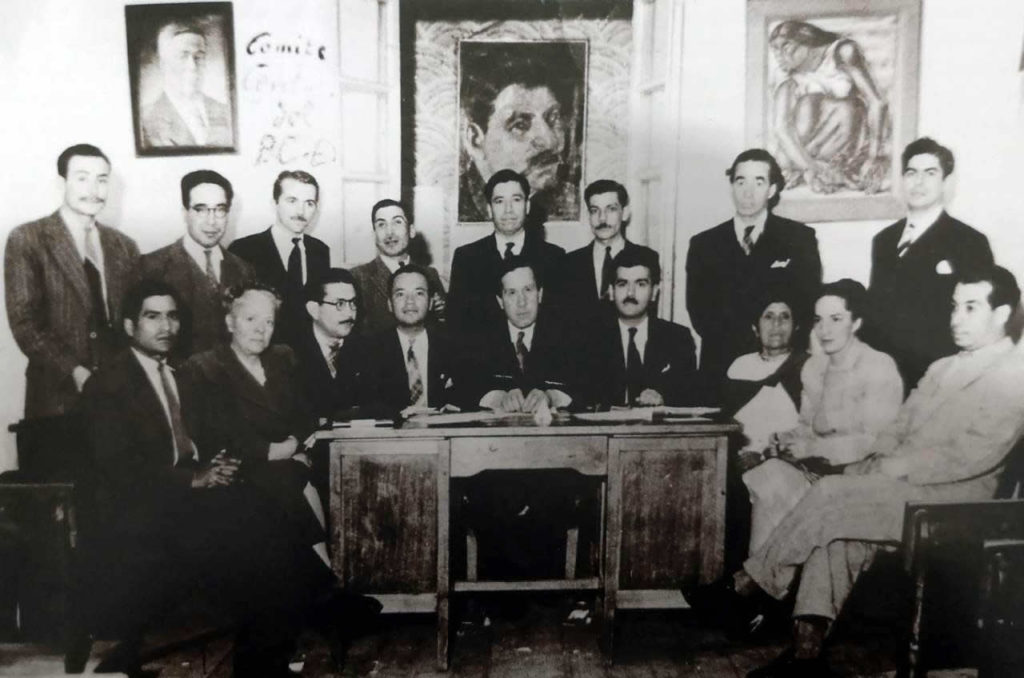
Personal life
In 1933, Enrique Gil Gilbert was introduced to Alba Calderón, a renowned painter and feminist, by fellow writer Demetrio Aguilera Malta. Calderón, born in 1908, gained recognition for her 1939 painting Coffee Pickers and was a significant figure in Ecuadorian art and women’s rights advocacy. The couple married in 1934 and had two sons: Enrique Gil Calderón, who later became a choral director, and Antonio Gil Calderón, who pursued a career as a physician and businessman. Alba Calderón played a crucial role in Ecuador’s feminist movement, advocating for the recognition of women’s rights, while continuing her artistic contributions. Their marriage marked the union of two influential figures in Ecuadorian cultural and political life, both of whom left lasting legacies in their respective fields.
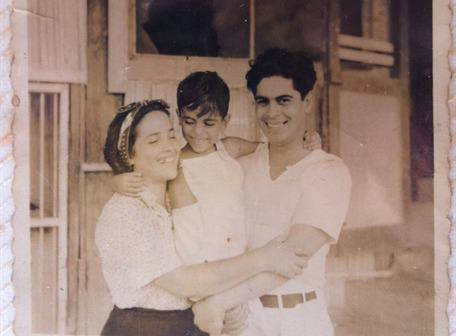
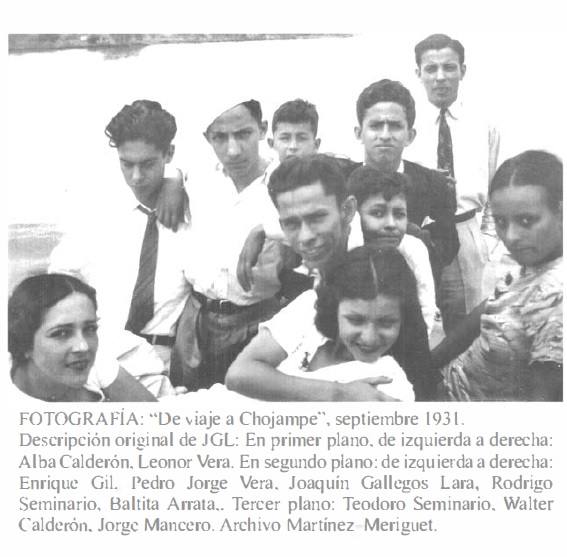
Legacy and Recognition
Gil Gilbert’s contributions to Ecuadorian literature, particularly through his involvement in the Guayaquil Group, have left a lasting impact on Latin American literary traditions. His works, such as Nuestro pan, are regarded as milestones in social realism, providing a powerful critique of social inequality and labor exploitation. Despite the loss of many of his manuscripts, his surviving works continue to be studied and admired for their literary and social significance.
He passed away on February 21, 1973, in Guayaquil at the age of 60. His remains rest in the Cementerio General de Guayaquil.
Works
Novel
Enrique Gil Gilbert published his only novel Nuestro pan (1942) in Guayaquil. It was translated into English by Dudley Poore and published in New York by Farrar & Rinehart as Our Daily Bread (1943). Read the original Spanish edition for free here.
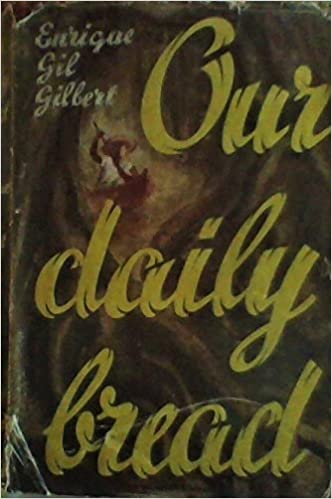
…From the start, the jungle absorbs the characters, breeding all deeds and presiding over them. The book [Our Daily Bread] grows out of it – like a fern, like a canoe plying its river torrent. Señor Gilbert has written a novel with eyes turned upon the land, written it with eyes, ears, nose and mouth. When you finish his book you will have smelled and tasted Ecuador, stroked the soft pile of the Ecuadorian night and felt its tropic texture…The vigor of this book is fundamental. The special enchantment of its background gives it a startling beauty and a spiritual meaning all its own.
Eudora Welty in “Exotic, from Ecuador” in The Latest Works of Fiction section of The New York Times, July 18, 1943.
Short Stories
- Los que se van (Guayaquil, 1930)
- Yunga (Guayaquil, 1933)
- Relatos de Emanuel (Guayaquil, 1939), read it for free here.
- La cabeza de un niño en un tacho de basura (Guayaquil, 1967).
Collections
- El nuevo relato ecuatoriano (Quito, 1951)
- Antología del cuento hispanoamericano contenporáneo (1958)
- El cuento hispanoamericano (México, 1964)
- Antología del relato ecuatoriano (Quito, 1973)
- Cuento de la generación de los 30 (Guayaquil, s.f)
- Así en la tierra como en los sueños (Quito, 1991)
- Cuento contigo (Guayaquil, 1993)
- Antología básica del cuento ecuatoriano (Quito, 1998).
References
- Pérez Pimentel, Rodolfo. “Gil Gilbert, Enrique.” Diccionario Biográfico del Ecuador, https://rodolfoperezpimentel.com/gil-gilbert-enrique/. Accessed 22 Sept. 2024.
- “Enrique Gil Gilbert.” Busca Biografías, https://www.buscabiografias.com/biografia/verDetalle/10507/Enrique%20Gil%20Gilbert. Accessed 22 Sept. 2024.
- “Enrique Gil Gilbert.” Wikipedia, https://es.wikipedia.org/wiki/Enrique_Gil_Gilbert. Accessed 22 Sept. 2024.
- “Enrique Gil Gilbert.” Ministerio de Cultura y Patrimonio del Ecuador, https://www.culturaypatrimonio.gob.ec/enrique-gil-gilbert/. Accessed 22 Sept. 2024.
- Welty, Eudora. “Exotic, from Ecuador.” The New York Times, 18 July 1943. Accessed 22 Sept. 2024.

